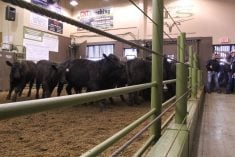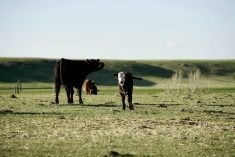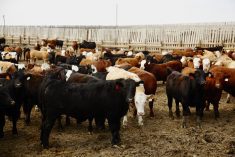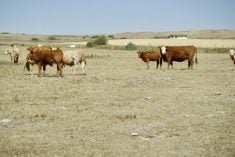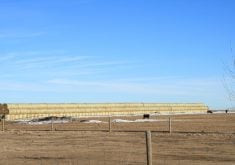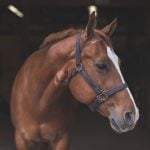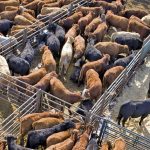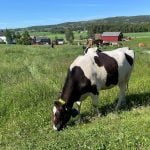Dr. Sydney Crosby’s career path is a perfect example of taking the route less travelled by. It hasn’t been an easy road, but her passion has sustained her on the journey.
Growing up in Athens, Georgia, she wasn’t introduced to beef medicine until she took an agriculture program at the University of Georgia. But today she’s a vet with Fen Vet in southern Alberta.
“We were kind of outsiders even within our own environment. But you don’t have to be from a farming background to be good at what you do,” she says.
Read Also
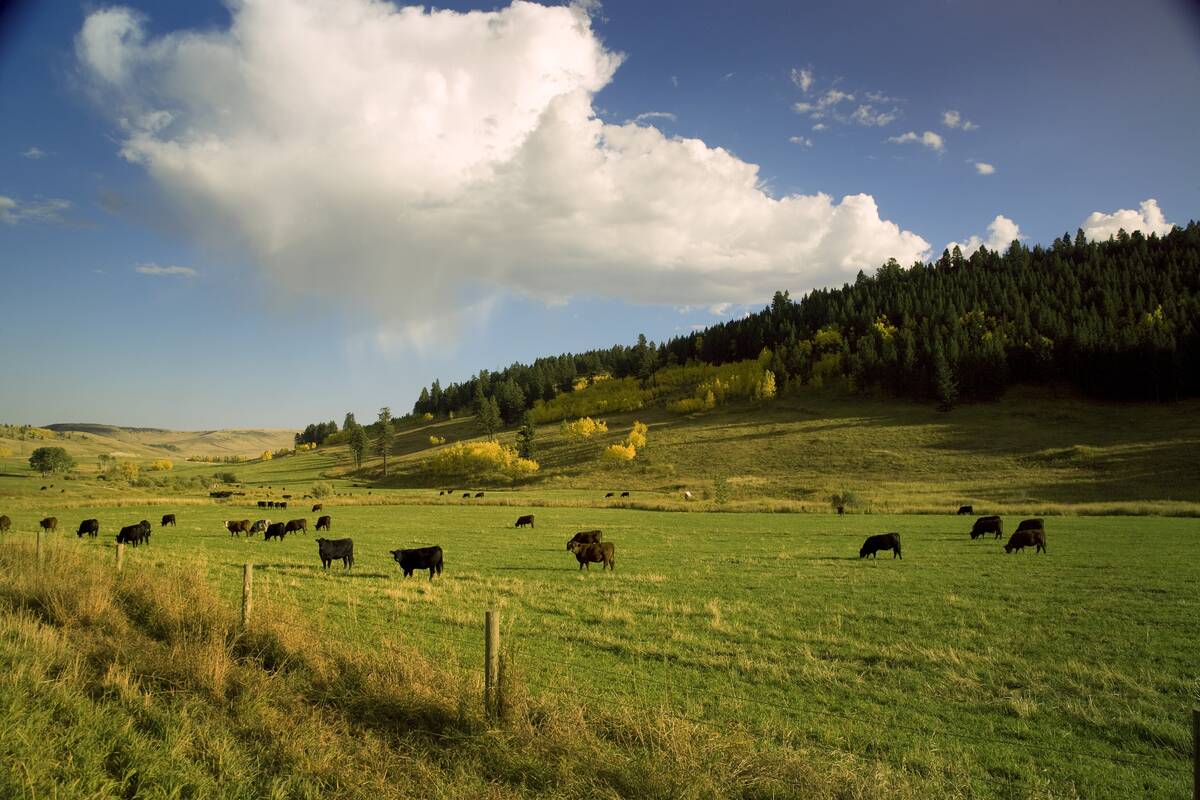
The Canadian Cattle Association’s international advocacy efforts
Global ag policies affect Canadian food policy, so the Canadian Cattle Association participates in international and domestic forums
Persisting despite criticisms
Unfortunately, it wouldn’t be the last time Crosby felt like an outsider in her career. But her passion for bovine medicine and appreciation for the ranchers and other people she works with have sustained her.
Although she was born in the city, Crosby always knew she wanted to be a vet. She was drawn to the central part of Georgia, where the plains begin. Exploring food animal practice at university made her realize she wanted to work in the agricultural sphere of veterinary medicine. It wasn’t long before she fell in love with beef medicine and decided to pursue it seriously.
“What I really liked about beef production is the numbers and the data and the opportunity to help the producer. It’s kind of a different way of looking at things,” Crosby tells the audience at the Saskatchewan Beef Industry Conference in Saskatoon last winter. “We all love animals, that’s why we got into vet med, but when you look at it from a production standpoint, you have the ability to make a difference and make an operation more profitable.”
Still, she’s faced her share of challenges, starting with her education, she tells conference attendees.
“This is a quote that a veterinarian actually told a food animal student on a clinical rotation: ‘You city kids always say you want to practice food animal medicine. The school needs to find more rural students.’ This is from another veterinarian: ‘You are not a good fit for food animal medicine.’”
Those comments are directed at students who are “fired up” and “passionate” about veterinary medicine, she adds. “They are bright-eyed, they’re still smiling, covered head to toe in manure and are just chomping at the bit to push in a prolapse … And this is the kind of garbage that people are telling them.”
Despite its relatively small size, the agriculture industry isn’t always welcome to perceived outsiders, she tells conference attendees. In the field, she’s encountered some ranchers who have reservations about her knowledge and skill level, related not only to her urban upbringing, but her gender. Crosby, in a somber tone, shares some of the comments she’s received:
“They sent a woman — I guess we got our work cut out for us.”
“I don’t want a lady vet on my property.”
“It’s kind of shocking, the lack of acceptance and discrimination,” Crosby says. “Most of the areas of discrimination centre around your background and being from an ag or a farming background or not, your gender, if you’re a minority, and if you’re in the LGBTQ community.”
Despite her frank criticism of the biases still held by some, many of her experiences in the industry have been positive. Crosby expresses love for the veterinary profession and the people she gets to work with — both other vets and producers.
“It might be cliche to say, but I’ve always really enjoyed working with the producers,” she says. “I’ve been very fortunate with the people that I’ve come into contact with.”
When people bring pets into the clinic, it’s usually a short visit, she explains. But when vets do preg checks, it means spending “maybe five to eight hours with these people and really catching up with them. And it gives you an opportunity to speak with them and really know what makes them tick and get to know them on a more personal level.”
As for her future in veterinary medicine, Crosby just finished a residency with the American Board of Veterinary Practitioners. She would like to find time to teach upcoming vets in beef medicine and provide the mentorship she believes is so crucial for the future of food animal practice.
“In the future, I’d like to teach. There are no plans for that right now, but I would like to be an instructor and a mentor eventually.”
Future of the industry
Crosby says that while she understands why producers may be skeptical of vets from urban areas, this mentality does nothing to help the current vet shortage or the issue of recruiting vet students to food animal medicine. But she also sees other factors influencing the vet shortage.
“I really do think it comes down to creating the interest in bridging that gap and getting people exposed to it. And then I think some changes in the curriculum will have to come over time. I don’t think it’s necessarily the criteria of the applicants. It’s more having good teachers and getting that exposure there.”
She says another issue in vet schools is the cost of tuition on both sides of the border. With thousands and thousands of dollars paid in tuition, making ends meet is a struggle for student vets.
“Veterinarians aren’t paid the same amount that human doctors are,” Crosby says. “And our school costs just as much, it’s harder to get in, we learn things in the same amount of detail.”
Crosby also has some advice for veterinary students interested in working in food animal practice who need contacts in that space. Based on her experience, she recommends getting one’s feet dirty and networking, to find someone who will take new vets under their wing.
“A lot of the good practitioners who are in clinical practice aren’t in academia. They like being out in the field and not teaching.”





